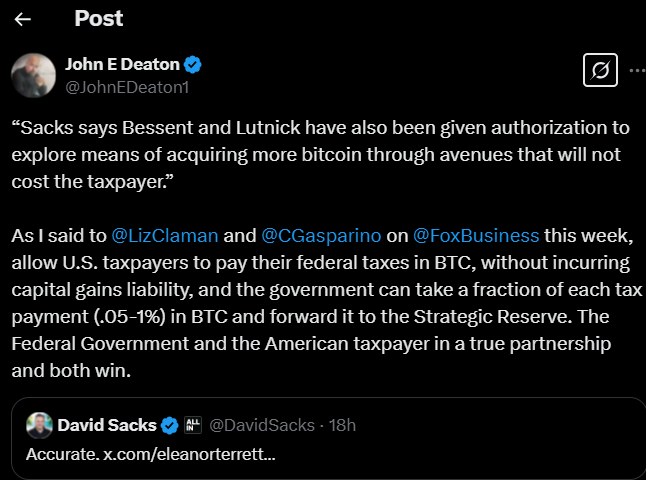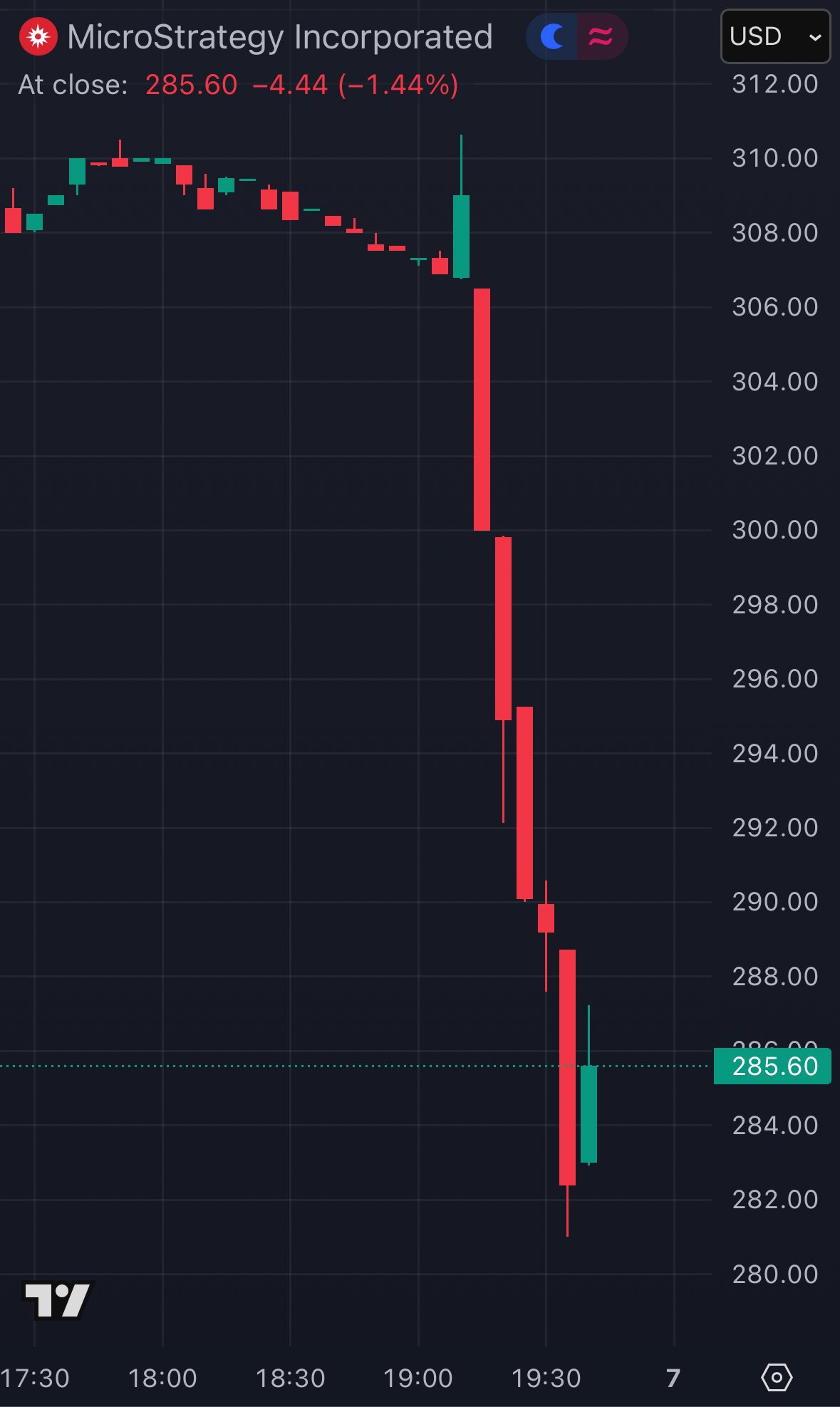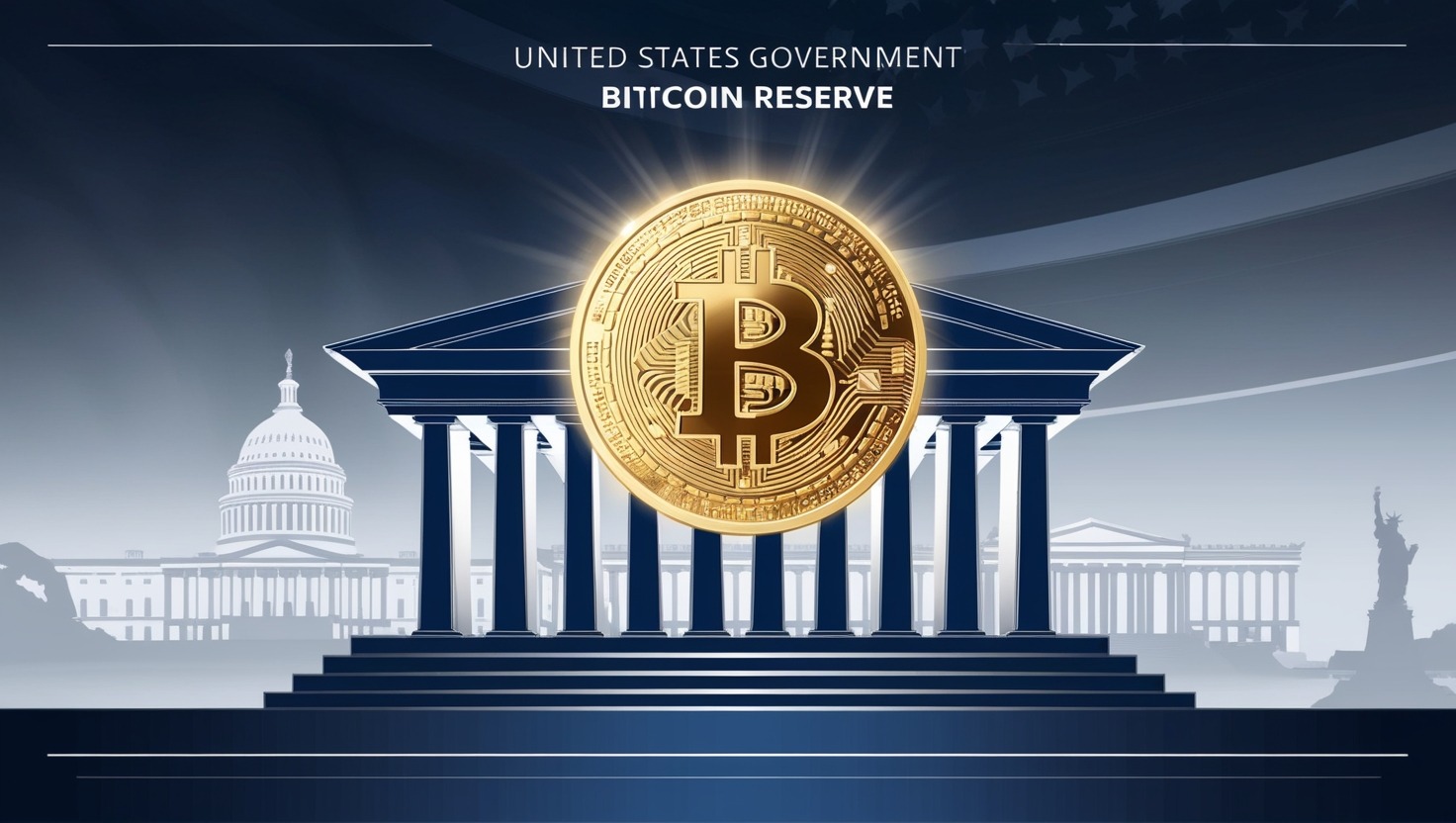- Bitcoin reserve : The U.S. government will retain seized Bitcoin rather than selling it, in order to avoid losses from pre-mature selling, but no more Bitcoin would be bought.
- Trump’s action in adding XRP, Solana, and Cardano to the reserve was attacked by Bitcoin supporters, who contend it dilutes Bitcoin’s status as a national reserve asset.
- The news sent the market into a decline, with Nasdaq off 8% since Trump’s inauguration and Bitcoin down 18% since Inauguration Day, defying hopes of massive purchases by the government.
Bitcoin reserve Impact : Bitcoin and cryptocurrency stocks dropped sharply after President Donald Trump signed an executive order for the establishment of a Strategic Bitcoin Reserve. The Bitcoin reserve would be established out of Bitcoin the U.S. government had collected from criminal and civil enforcement cases over time.
The development was announced by White House crypto Czar David Sacks last night. Bitcoin decreased by 5% within minutes, falling to $85,000.
Sacks promised no tax dollars would be spent on buying Bitcoin, and the government would keep existing Bitcoin rather than selling it. He referred to the bitcoin reserve as a virtual Fort Knox meant to prevent further losses through early selling of Bitcoin. In his view, previous U.S. government sales of Bitcoin have cost taxpayers over $17 billion in foregone value.
Controversy Around Inclusion of XRP, Solana, and Cardano
The revelation came with a twist when Trump subsequently stated that XRP, Solana, and Cardano would also be added to the current bitcoin reserve. The action was widely criticized by Bitcoin supporters like Tyler Winklevoss, who held that only Bitcoin should be included.
Nic Carter also criticized it, stating that inclusion of other cryptocurrencies might undermine Bitcoin as a national reserve asset.
Following the news, the overall stock market took a beating. The Nasdaq Composite has plummeted 8% since the beginning of Trump’s second term, with S&P 500 and the Russell 2000 dropping 4.3% and 9.2%, respectively. One day saw a reported $1.15 trillion erased from the American stock market.
The value of Bitcoin is still 29% higher since the election but down 18% since Inauguration Day. Ethereum dropped 37% over the same time, and XRP and Solana did as well. Even with the drop, some crypto influencers feel that the executive order is a good thing.
XRP lawyer Johnny Deaton noted that the action opens up new avenues for use of Bitcoin, such as permitting taxpayers to use it to pay federal taxes.

Most investors had anticipated a larger move, expecting the government to spend billions of dollars on Bitcoin, driving prices up. Yet, since the announcement included only already seized money, a “buy the rumor, sell the news” response ensued. Those traders who had anticipated a substantial surge closed their positions, leading to further market declines.
MSTR falls over Bitcoin reserve
MicroStrategy’s share price fell 10%, at $304.11, as investors shifted from MSTR to Bitcoin itself, putting further pressure on the stock downward. Even with the short-term setbacks, MicroStrategy is still a dominant force in the Bitcoin arena. The company has a large position in Bitcoin and is seen as a significant institutional investor.
Although some investors have distanced themselves from MSTR since the announcement, others think the long-term impact of the Bitcoin Reserve will be positive.

Clarity from the Trump administration on regulations could bolster trust in Bitcoin, but there is still uncertainty. The future of Bitcoin reserve and stocks related to it will probably be determined by government actions.
Treasury Secretary Scott Bessent and Fed Chair Jerome Powell are likely to give more information soon, which may influence market sentiment further.



